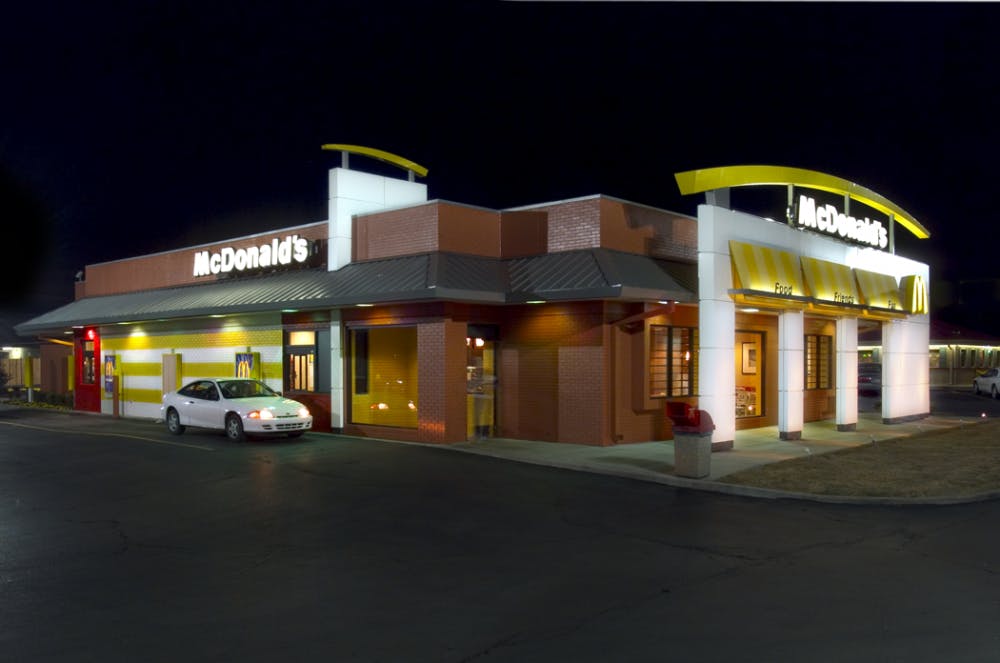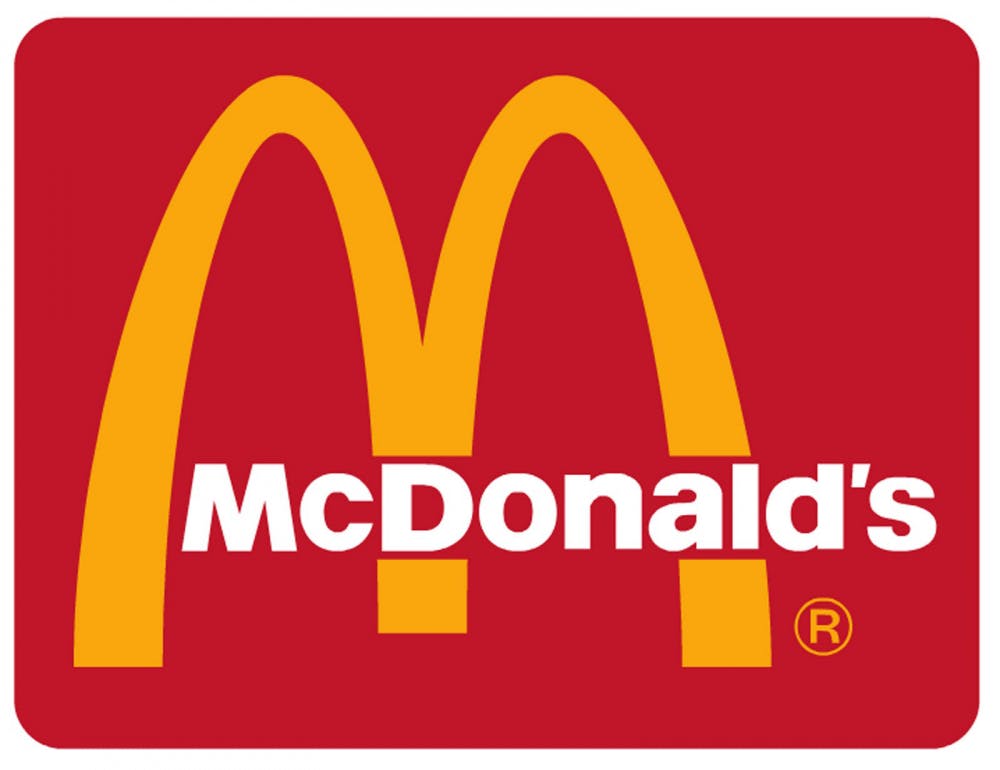Hanson Reed | Echo

A Big Mac: delicious (to some), consistent, classic - and cheap? The iconic burger is in the middle of a whirlwind of public debate following recent protests over McDonald's low wages. The federal minimum wage is set at $7.25 per hour, but employees are arguing that such compensation is unjust. You simply cannot support a family on it. The employees' solution: McDonald's should more than double their hourly wage.
After all, McDonald's is a highly successful corporation (the argument goes), clearing $5.5 billion of profit in 2012 according to Forbes. They can certainly afford to pay their employees respectable wages. According to a study by Arnobio Morelix, a University of Kansas undergrad, McDonald's could double wages by raising the price of a Big Mac just 68 cents, the Huffington Post reported. According to Morelix, the wage increase would actually be surprisingly feasible.
Oh, but I forgot, it's not.
It turns out the estimates the Huffington Post article drew from were fundamentally flawed. In fact, they had to take down the article and replace it with a piece titled "Errors in McDonald's Wage Analysis." They failed to account for the fact that McDonald's operates on a franchise system, and the result was a false reality where we can have our proverbial French fries and eat them too.
We will look at a more accurate picture shortly, but for the moment, forget the studies. Forget the numbers and business models. I want you to understand something far more basic: Everything has a reason. Prices and wages are not created in a vacuum and dictated by all-greedy corporations. They derive from well-understood economic processes.
It is important to remember that every step in producing a Big Mac represents a market where resources are won by the highest bidder. McDonald's must compete against other firms for everything from beef to broccoli (all right, maybe not broccoli), from real estate to labor, and absolutely everything else leading up to the final market where you, the customer, choose whether to purchase their hamburger or a competitor's. At no step in the process does McDonald's pay more than anything is worth. Things may have intrinsic value, but economically speaking, nothing can ever be worth any more than someone will pay for it.
McDonald's is able to hire labor adequate for their needs at minimum wage, and the labor they are provided with is therefore worth exactly minimum wage. Whatever one may feel about the social justice of this, it would make absolutely no economic sense for McDonald's to pay more than it is required in order to purchase labor, and the loss of efficiency inherent in doing so would not only harm McDonald's, but the economy as a whole. Certainly, one could make the argument that social welfare programs such as Medicaid and SNAP (food stamps) are subsidizing McDonald's, since they in part make up for the low wage, but this is not unique to McDonald's by any means. It is an across the board fact for all unskilled labor earning low wages, and is a result of government policy, not corporate management.
The idea that the labor McDonald's purchases is worth any more than they pay is simply ignorant: If it was worth more, than they could not have purchased it in the first place. Value is simply a matter of price. That said, let us consider what would happen should McDonald's take the altruistic path and actually affect the increase employees are demanding:
Every employee would earn a living wage. But wait, there's more! On average, fast food joints operate by putting 30-35 percent of their income straight into labor. Doubling the cost of labor means either cutting back on everything else (like the actual food), or cutting back on labor. (In reality, there would be a combination of both, but the bulk of cutbacks would have to fall on labor.) This means hiring fewer employees, and likely firing existing ones. Long term, loss of workers would perhaps be offset by increased automation, such as ordering via a self-service touch screen.
Furthermore, increasing wages puts McDonald's jobs on par with manufacturing and other jobs, opening up an entirely new section of the labor market. People who work all day doing backbreaking labor in non air-conditioned factories and machine shops might do well to consider a job flipping burgers, if compensation is equivalent.
Fewer jobs and more, higher-qualified individuals who want them - it's starting to look like those asking for the raise, should they get it, would be going from a low paying job to no job at all.
The final piece of the puzzle is a price increase. Most estimates place about 30 percent of the burden on the consumer. So what is wrong with paying a bit more to support the thousands of (formerly) low-income workers? Absolutely nothing, except that people won't do it, at least not consistently enough to overcome the basic math. McDonald's has competitors. When the price goes up, those competitors suddenly become more appealing, and McDonald's loses customers. There is a reason nobody brags about having the highest price for a given product.
Wages increased, where do we stand? McDonald's pays well, but it is almost impossible for the segment of the population they traditionally employed to get a job there. Furthermore, the increased cost of labor has cut deeply into their profit margin, and increased prices have resulted in a diminished market share. They cease to be an economically efficient company, which brings into question how long they will be able to support their diminished workforce. The long and short of it: This just isn't happening.





